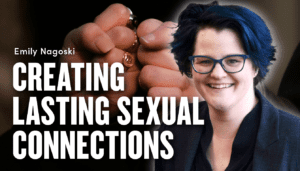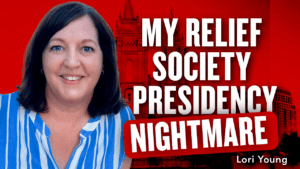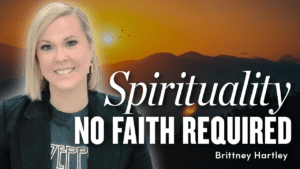 Ahead of a possible Utah medical marijuana ballot initiative in the Fall of 2018—and in light of the LDS Church signaling its opposition to the initiative—Mormon Stories seeks to have an open, facts-based discussion about the medicinal uses of marijuana and the LDS Church’s role in the legislative process to prevent its passage in the state of Utah. To begin that conversation, we continue our interview with Andrew Jolley—an entrepreneur in Nevada who started The+Source dispensary in 2013 after Nevada passed legislation allowing the use of medicinal marijuana in that state.
Ahead of a possible Utah medical marijuana ballot initiative in the Fall of 2018—and in light of the LDS Church signaling its opposition to the initiative—Mormon Stories seeks to have an open, facts-based discussion about the medicinal uses of marijuana and the LDS Church’s role in the legislative process to prevent its passage in the state of Utah. To begin that conversation, we continue our interview with Andrew Jolley—an entrepreneur in Nevada who started The+Source dispensary in 2013 after Nevada passed legislation allowing the use of medicinal marijuana in that state.
We cover:
- What Andrew learned about the medicinal and societal value of marijuana that lead him to become involved
- A historical discussion about the political and cultural motives to making marijuana illegal
- The economic impacts seen in the states that have chosen to legalize marijuana use
- The medical impacts of the different types of cannabinoids found in marijuana
- Efforts made ‘behind the scenes’ by the LDS Church to oppose the initiative to allow for medicinal marijuana use
- What Andrew believes Utahns should do to inform their decision on legalization
If you missed our incredible interview with both Andrew and his wife Allison as they discussed healing their marriage during a faith transition, you may find that here.
Part 1:
Part 2:
Part 1
Part 2




13 Responses
Thank you!! I am so happy this is being discussed more and among active and inactive mormons. I have Multiple Sclerosis for 20 years, depression, anxiety, and back issues (teenage car accident) including a disc replacement. Our vacations in CO, CA, OR and NV are the best weeks ever!! No pain, anxiety, etc., it is a fabulous week! But back in VA, where we currently reside (until I can move back home to OR someday), it is illegal and with the opioid epidemic, I am treated as a druggy asking for help with the pain. I have seen since childhood, cannabis help people with cancer and anxiety. I anxiously wait for the day when it can be used everywhere for people with any of these illnesses.
I have worked with many people who used marijuana as a recreational drug. Every morning they would come in a little buzzed and often times after lunch. For the first hour, I considered them basically worthless to the team. Most of them seemed unaware of how dependent they became, not only on the drug but on co-workers who didn’t do drugs. It’s not good and it’s not fair. As for medical marijuana, I consider that an issue for the medical community but they are largely silent.
Concerning the legality, I can’t make up my mind. Seemingly, it would take drug cartels out of the picture, generate revenue for the states, cause much less incarceration, and allow people to pursue a job without having a police record or stress of worrying about drug tests. But where do we draw the line? Are truck drivers and airline pilots permitted to drive and fly with this substance in their bodies? It’s not a simple subject.
What great interviews! I so appreciate your courage, Andrew and Allison in sharing your long, painful journey. You two deserve so much love and fun together! Way to hang in there together all those years! When I was still a member of the Church (resigned August 2015) I voted for legalizing pot (and same-sex marriage in 2008 when I was still in CA) and caught such hell! I was sick on the sofa all day today, and this evening before this episode of Mormon Stories watched the new Sanjay Gupta Weed4 – Pot vs. Pills on CNN. Legalizing pot nationwide is the right thing to do. Thank you, John as always for another great interview!
Sandy – Vancouver WA
I’ll begin by stating that I am no longer a believing Mormon. I’ll dispense with my Mormon resume about how active I was when I was a TBM. Having said that, I can’t remain silent about the false history I heard today when John spoke about the Civil Rights Movement, the Civil Rights Acts of 1964 and the Voting Rights Act of 1965.
First, I cringed when I heard John say he wasn’t bashing Republicans. I fully expected him to use the cliché, “Some of my best friends are Republicans.” John, your remarks were border line bigotry (can you say racist whites folks). You and your leftwing friends, so-called progressives, arrogate yourselves to very high levels of pontification — acting as if you are morally superior to the rest of us unenlightened and unwashed Americans.
The first president of the United States to actively use federal powers to protect the civil rights of US citizens in modern times was President Eisenhower, a Republican. Not Roosevelt and not Truman, who were both Democrats. Eisenhower used the 101st Airborne Division of the United States Army in 1957 to protect black students, “The Little Rock Nine,” a group of nine African American students enrolled in Little Rock Central High School. In addition, Eisenhower nationalized the Arkansas National Guard which was being used to block the Little Rock Nine from attending Central by Arkansas Governor Orval Faubus, a Democrat, stopping him from using the Guard to enforce the segregation laws of Arkansas.
The Civil Rights Act of 1964 could not have occurred had it not been for the Republican Party. In the Senate, the Democrats could only muster 45 votes (61% of their caucus) for passage; the Republicans cast 27 votes (80% of their caucus) for cloture, paving the way for the Senate to overwhelming pass the bill. In the House, the Democrats only had 152 votes (61% of their caucus), which was far short of the majority needed to pass the bill. The Republican cast 138 votes (80% of their caucus) to once again to put the bill’s passage overwhelmingly over the top. I’ll say it one more time: “The Civil Rights Act of 1964 could not have past had it not been for the Republican Party!” Without going into detail, the same can be said for the Voting Rights Act of 1965.
I live in Oregon where marijuana is legal and I support that. When Andrew Jolley made the statement implying that the LDS Church was subverting the political process (I don’t agree with the LDS Church’s position on medical marijuana), I cringed again – it was like hearing fingernails being pulled down a chalkboard.
The LDS Church cannot endorse candidates but it can legally, and does, take positions on political issues – just like the SEIU and all the other public employee and private unions do. Anyone can participate in the political arena to influence public policy. Unions as a group have contributed billions over the years, way more than LDS Church by a longshot, to influence public policy. Pressure groups are merely extensions of homogeneous groups, both left and right, which have the right, one might even say the duty, to influence public policy — including the LDS Church. All organizations under current law are allowed to participate in the public arena of the body politic with monies and organizational resources. Sauce for the Goose is sauce for the Candor.
Gentlemen, your statements in the podcast made you sound petty and bigoted, which I sure you’re not. By your direct statements and innuendos, you are suggesting that people of my genre are.
Once again, I’m not fan of the LDS Church, but I’ll defend their right, your right and my right to free speech to the end.
Frank
“Frank”,
I apprecite the feedback and perspective. I’m curious. Have you seen the movie 13th? If you have, I’d love to read your response to it.
John
Gee whiz Frank it doesn’t take much to get you clutching your pearls with righteous indignation does it? It seems you managed to find offense in what wasn’t said rather than anything that was. At any rate, I found the discussion about cannabis very educational and I don’t believe there is a case to be made that John or Andrew were pushing an anti-“people of (your) genre” agenda.
Thank you. I echo many of your statements.
Yes I have. I’ll begin by quoting the film critic, Kyle Smith, when reviewing the documentary 13th, he wrote the following: “the film is a morass of distortions, half-truths, calculated omissions, absurd hyperbole and outright falsehoods.” (You can read his entire review at https://nypost.com/2016/10/05/new-doc-about-incarceration-of-black-men-is-filled-with-lies/). The documentary 13th is the Duke Lacrosse scandal on steroids.
John, the vast majority of people in America are incarcerated because of violent crimes (Chicago is a good example of the senseless violence that we are experiencing in our country, most of which, by the way, is black on black crime) and not because of drug convictions. Only sixteen percent of all people incarcerated in state prisons, where eighty-seven percent of the prison populations are housed, are incarcerated for drugs. I’m sure we can all agree that violent criminals need to be kept off the streets of America.
Let’s just agree that the social problems we face in America are complex. However, dogmatic and pithy rhetoric will not get us any closer to solving our problems. Blaming Republicans and suggesting that they are white racist, which is intrinsically racist, solves nothing.
Frank
“Frank”,
What do you make of the quote Andrew read in the interview? I’ll provide it here:
“The Nixon campaign in 1968, and the Nixon White House after that, had two enemies: the antiwar left and black people,” former Nixon domestic policy chief John Ehrlichman told Harper’s writer Dan Baum for the April cover story published Tuesday.
“You understand what I’m saying? We knew we couldn’t make it illegal to be either against the war or black, but by getting the public to associate the hippies with marijuana and blacks with heroin. And then criminalizing both heavily, we could disrupt those communities,” Ehrlichman said. “We could arrest their leaders. raid their homes, break up their meetings, and vilify them night after night on the evening news. Did we know we were lying about the drugs? Of course we did.”
https://harpers.org/archive/2016/04/legalize-it-all/
Some people will say that Erlichman didn’t say it, that Baum made it up. Others will say that Erlichman said it but was being sarcastic. I believe that Erlichman made the statement to Dan Baum to redeem himself by discrediting his former boss, Richard Nixon. Erlichman post-Watergate was a very bitter man who vehemently hated Richard Nixon. I believe that he was rewriting history. Why did he wait until ’94 to drop the bomb? Remember Nixon died in ’94.
We all know that a lot of accounts in Mormon history are written many years after the fact. I believe that you people with PhD’s like to use the words “non-contemporaneous accounts.”
I’ll let history sort it out when it comes to Ehrlichman’s controversial statement.
Dwayne,
To your question “Are truck drivers and airline pilots permitted to drive and fly with this substance in their bodies? ” It would or should be classified the same as alcohol or any prescription narcotic, you should not be operating heavy machinery (ie a plane, a car, a truck, etc) under the influence of these drugs either. If you are taking anything that impairs your abilities and you should not be behind the wheel, period.
Reply
And let me just state here and now: this is about civil rights. I have the inalienable right to do with my body what I want. The government is supposed to protect – not limit – my individual rights that I’m exercising when it does not harm others.
Mormonism can take any stance they want with their followers but they should not be allowed to restrict my rights ever. And they should be abolished for trying to do so.
They are intruding into my life and politics as a religion. And we should destroy this ridiculous cult for doing it.
Mormons need to reread D&C 89, the “Word of Wisdom”.
And again, verily I say unto you, all wholesome herbs God hath ordained for the constitution, nature, and use of man—
Every herb in the season thereof, and every fruit in the season thereof; all these to be used with prudence and thanksgiving.
D&C 89:10-11
Cannabis is a wholesome herb. According to the “Word of Wisdom”, God has ordained cannabis for the constitution, nature, and use of man.
The current leadership of LDS, Inc. must be composed of apostates who do not accept the Doctrine and Covenants as scripture, given their opposition to cannabis. Cannabis is a non-toxic medicinal herb, a wholesome herb.